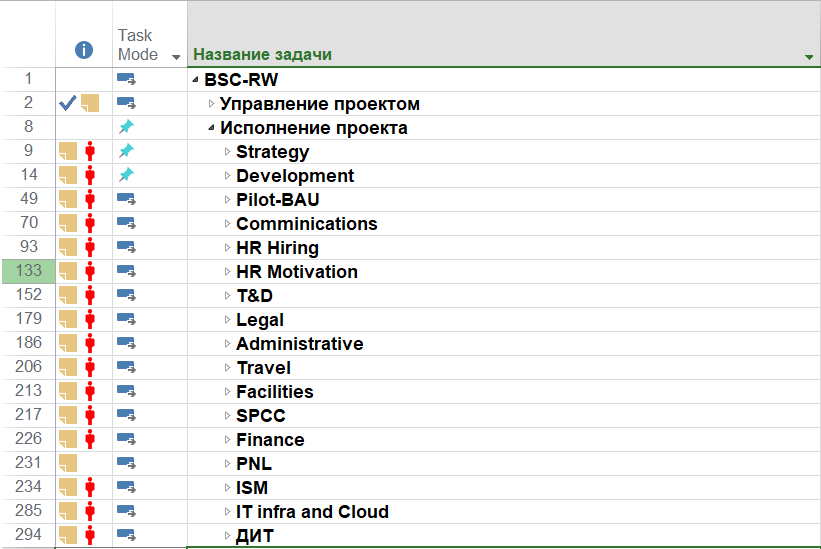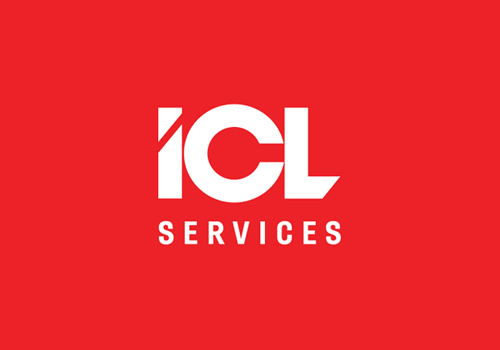News
7 April 2020
News
Готово!
Скоро материал придет на указанную электронную почту. Также подписывайте на нас в Facebook
Ok
Emergency Transition to Remote Work. ICL Services Specialist Recommendations
In the course of our strategic planning sessions for the year 2019 we came to understanding that, for our further development, we need to learn how to work efficiently in a remote format. In early 2019 we initiated a strategic project for shifting to remote work. We had finished piloting the project by the end of 2019 and now, at the beginning of 2020, we provide the ICL group of companies with remote jobs for 4,000 people, whose job responsibilities comply with this format. Many companies today (from private businesses to government agencies) are urgently trying to switch their employees to remote work. We have decided to provide them with our assistance in this difficult situation by sharing our experience.
A Work Plan and a Project Team
In order to implement the transition of our staff to working remotely here at ICL Services we came up with a project team consisting of heads of various departments: HR, financial and legal services, IT, etc. The project was led by the head of our Information Security Department. Given the current conditions, most enterprises will have to build such teams as fast as possible, so the end result might look more like an emergency response team than a project team. During crisis, when there is no time for building hierarchy and areas of responsibility, precise work coordination is crucial, so it would be best that the headquarters be led by an authoritative and a rather authoritarian leader. It doesn’t matter which division he or she comes from, really. It might be an IT manager, an HR director or even a chief accountant. Since the project covers all subject areas, its effectiveness relies on leadership skills more than, e.g. extensive knowledge in IT.
The Main Project Objectives
As mentioned above, the work plan covered almost all linear divisions and functions of our company.
If you pay attention, the IT component of this project includes the last three lines in the work plan. No one is trying to depreciate the importance of a well-organized IT platform — this is one of the bottlenecks of this project. But without a detailed study of the whole range of issues we will end up having a well-distributed network of employees with a totally non-working business process.
In the course of this project we have solved the following tasks:
In order to implement the transition of our staff to working remotely here at ICL Services we came up with a project team consisting of heads of various departments: HR, financial and legal services, IT, etc. The project was led by the head of our Information Security Department. Given the current conditions, most enterprises will have to build such teams as fast as possible, so the end result might look more like an emergency response team than a project team. During crisis, when there is no time for building hierarchy and areas of responsibility, precise work coordination is crucial, so it would be best that the headquarters be led by an authoritative and a rather authoritarian leader. It doesn’t matter which division he or she comes from, really. It might be an IT manager, an HR director or even a chief accountant. Since the project covers all subject areas, its effectiveness relies on leadership skills more than, e.g. extensive knowledge in IT.
The Main Project Objectives
As mentioned above, the work plan covered almost all linear divisions and functions of our company.

If you pay attention, the IT component of this project includes the last three lines in the work plan. No one is trying to depreciate the importance of a well-organized IT platform — this is one of the bottlenecks of this project. But without a detailed study of the whole range of issues we will end up having a well-distributed network of employees with a totally non-working business process.
In the course of this project we have solved the following tasks:
- Calculating the economic efficiency of remote working.
- Developing a 2-3 year strategic plan for the remote work implementation.
- Upholding a business case for the new project’s phase in 2020.
- Appointing a Remote Coordination Manager.
- Developing an IT guide for remote employees.
- Preparing a report on remote work piloting (transition and hiring).
- Registering all of the remote employees in the system. Preparing a report on their number.
- Posting a remote work-related webpage on the corporate portal.
- Making final changes to the process of hiring and adaptation of the remote employees.
- Describing the remote work termination procedure.
- Developing a plan for introducing changes into the motivation system.
- Developing a guide for manual remote work transition process.
- Analyzing the impact of remote work on management accounting systems and processes.
- Making priority changes to the Training & Development process.
- Making changes to the Induction activities.
- Developing training courses in organizing remote work for managers and employees.
- Developing a remote work termination agreement form.
- Making changes to absenteeism management and time tracking, including automation.
- Hiring and adapting a clerk for working with the remote employees.
- Making changes to budgeting process related to remote work.
- Preparing conditions for a coordinated guest job concept.
- Preparing a Dashboard of remote work indicators for the top management.
- Making changes to processes ensuring business continuity due to remote work.
- Making security changes to commercial project standards due to remote work.
- A list of permissible posts: posts and grades that may have access to the respective types of remote work.
- A workplace safety self-assessment list. Using this list an employee may assess the suitability of the workplace for remote work. The checklist includes questions about permanent Internet connection availability, backup communication channels, workplace requirements, etc.
- The candidate’s self-assessment list. It includes questions on self-organization, interaction with colleagues, remote access and information security.
- An application from the employee, requesting permission to use the remote work option.
- Coordination procedure (HR, lawyers, project and line manager) Our company is ready to share these documents upon request.
Things to Pay Attention To
Transition and Hiring
In the course of developing the remote work transition procedure we provided for an option of situational remote work in case of natural disasters, emergencies, catastrophes, epidemics, etc. In this option, only line manager coordination is required to shift to remote work. Major part of enterprises nowadays will most likely be forced to use this procedure and issue the decision by order of the Director General.
We have developed the following procedure to carry out a planned remote work transition:
Team readiness
Technically, providing remote access to work files is easier than organizing an effective work process. The team will take some time to learn how to use the new form of communication. Remote group meetings, as opposed to the real life, might be less effective at first. Communication is the biggest issue. While working in the office one can approach, ask or make a phone call allowing better team coordination in accomplishing tasks. When working remotely it is extremely important to plan things in advance before the team meets online. One of the best ways of building communication at the initial stage might be to start a working day with an online briefing where people can share work news or some personal events just like it usually happens in the office.
Performance evaluation
While working in the office we may often use external indicators to evaluate an employee’s performance: concentration level, number of meetings held or phone calls made. All these criteria are very far from the real work efficiency, since many employees are very good at simulating feverish activity. This evaluation method cannot be applied to remote work. It is necessary to develop efficiency criteria based on the goals and objectives reached by an employee. This is a rather complicated task since in case of intellectual labor it is hard to tell how much time it will take an employee to complete a job. It might take a few minutes for one person and days for another. We no longer have the opportunity to ‘look over the shoulder’ to evaluate the intensity of work so we need to look for other variants.
Workspace organization
It is very important for remote workers to be able to organize their workspace separating it from their household surroundings. You can find quite a few materials on the subject. But let’s not forget that in this case a lot depends on organizing virtual workspace: tools to be used for shared file processing, knowledge exchange and online meetings. At this stage IT plays a vital role.
Related news
- 21 April
What is IT outsourcing and what does it do?
What is IT outsourcing, what are it’s advantages and how not to be mistaken with a choice of service provider? All of this in our article.
- 29 September
Which mobility element does your business need?
Ruslan Vagizov, our executive director, spoke about the reality and prospects of the mobilization of Russian companies, the benefits of Mobile Device Management tools and the dynamic growth in demand for Cnews mobile application development.
Stay informed
Subscribe to our newsletter and keep up with our latest news
Contact us
Leave information about yourself and your company to get a detailed presentation.

